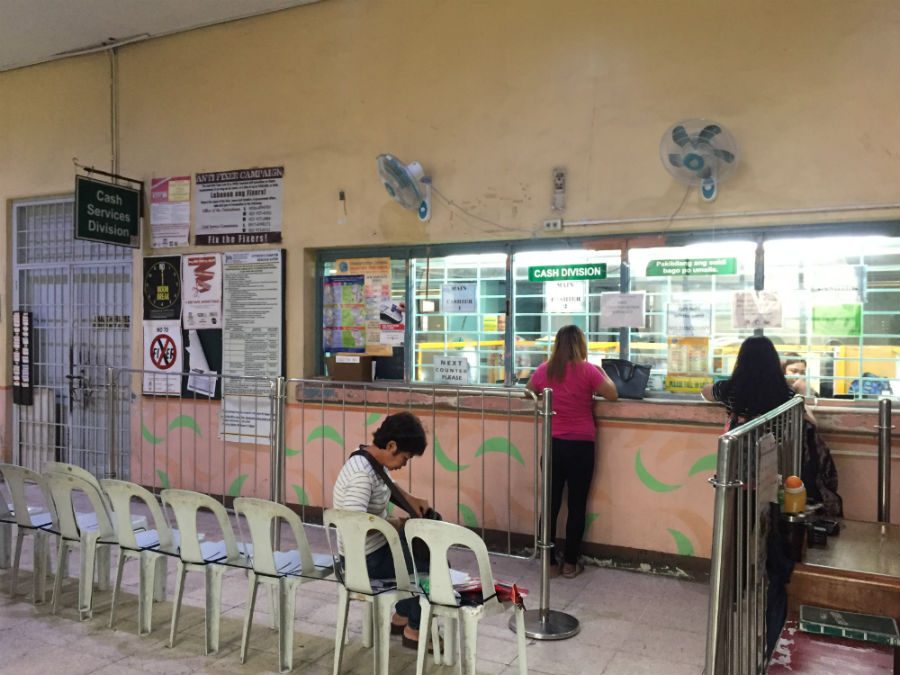SUMMARY
This is AI generated summarization, which may have errors. For context, always refer to the full article.

MANILA, Philippines – President Rodrigo Duterte signed the landmark Universal Health Care (UHC) law in February 2019, but audit of the Department of Health (DOH) indicates the agency’s unpreparedness in rolling out the program.
The 2018 audit report of the DOH showed poor implementation of programs which would fall under law, such that it was only able to spend 61% of its budget in 2018.
It also risks to waste P367.158 million worth of medicines which were found to be near expiry.
Even with multiple problems, the DOH more than doubled its budget for 2019 for the first official year of implementing the Universal Health Care Act.
Expiring medicines
The Commission on Audit (COA) found that P367.158 million worth of medicines are near their expiration dates. These are medicines found in DOH warehouses, recipient agencies, and government hospitals.
“(It) has exposed these inventories for distribution to the risk of expiration before it reaches the intended beneficiaries, affecting the immediate and maximum use of said medicines, increasing the probability of losing their efficacy, slow delivery of health care goods to the intended beneficiaries, and the possibility of resulting in wastage of government funds,” auditors said.
Moreover, auditors found that hospitals are overstocked with medicines worth a total of P52.049 million. These medicines are called “slow-moving” or “idle” in the hospitals, again depriving the beneficiaries.
Roots of the problem vary from poor inventory processes, poor procurement planning, and slow release of Food and Drug Administration (FDA) results.
But even if they were confronted with these problems, auditors said the DOH continued to purchase medicines, thus resulting in overstocking.
The audit comes as a warning because the P12.9 billion worth of medicine purchases in 2018 are still in DOH warehouses and other facilities.
“If these ineffective or poor procurement planning and inventory management practices will not readily be addressed and corrected by the Procurement and Supply Chain Management Team, it would have a chilling effects on the implementation of newly signed Republic Act No. 11223, also known as theU niversal Health Care Act,” auditors said.
Lack of infra
Another key feature of the free health for all program is the Health Facilities Enhancement Program (HFEP), which aims to build more facilities accessible to more people.
But multiple deficiencies were noted in P4.5 billion worth of projects under the HFEP.
For one, P1.3 billion worth of infrastructure projects were delayed because of insufficient planning and different problems with contractors.
For the completed facilities, P49.109 million worth of them had defects such as poor tiling, water leakages, old roofing, damaged windows, defective pipes, and busted lights, among others.
Infrastructure projects worth P1.47 billion were not completed on time, and P1.43 billion worth of facilities are either not fully operational or idle. Projects worth P17.689 million have been abandoned or are due for termination, and P116 million worth of projects have not started yet.
“Considering that the projects were authorized through the General Appropriations Act (GAA), the government is indeed committed in achieving its Universal Health Care agenda, which the implementing agencies should rightfully pay off through prompt implementation,” auditors said.
They added, “However, project execution for various HFEP projects only started on the latter part of the last quarter of the year, and the delay is attributed to several revisions of the plan and deficient/inadequate planning.”
Auditors also pointed out that the procurement of P964.729 million worth of HFEP equipment had deficiencies (poor monitoring, prematurely purchased), while some were not found at all during inspection.
The DOH got a P112-billion overall budget in 2018, but the agency only disbursed 61.08% which is a low disbursement rate for the health department.
COA said “these low utilization rates reflect the inability to execute the programs and projects on time,” overall affecting the implementation of a pipe dream to provide free health care for all Filipinos. – Rappler.com
Add a comment
How does this make you feel?
There are no comments yet. Add your comment to start the conversation.